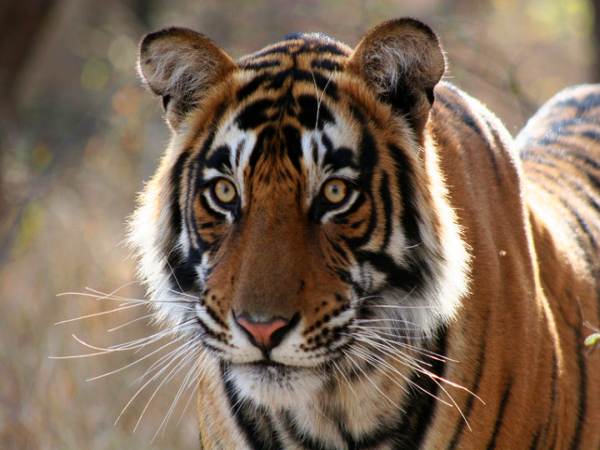
Cow-dung, changing rural economy fuelling man-carnivore conflict in Bandipur forest
Bengaluru, Oct 7: People living near Bandipur National Park, one of the last great redoubts of tigers, leopards, and elephants have a long history of peaceful coexistence with animals. However, a recent research has shown declining levels of tolerance towards tigers and leopards from people living in the region.

Fluctuating coffee prices, lower demand for cow dung as manure and increasing foreign cattle varieties may be part of the changing local economy, are found to be the reason behind fuelling man-carnivore conflict around Bandipur Tiger Reserve.

Scientists from Centre for Wildlife Studies (CWS) say that shifting from traditional to hybrid cattle breeds and the consequent increase in financial costs associated with their loss to killings by tigers and leopards have reduced tolerance towards these carnivores.
"Our research findings demonstrate the need to go beyond popular and often misleading narratives to identify and understand the various and complex linkages that often underlie in human-carnivore interactions," says Krithi Karanth.

According to the lead author of the study, Jared Margulies, University of Sheffield (UK), changes in livestock rearing patterns are producing new spaces where livestock and carnivores meet and local conservation efforts to reduce negative interactions between humans and carnivores needs to account these changes to reduce the burden of living with carnivores on rural communities.
The villagers had traditionally managed herds of hardy local cattle, foraging them inside Bandipur and gathering their dung to sell as fertiliser to regional coffee plantations. As the coffee industry boomed and herds swelled, the grazing turned destructive, and in 2006 the practice was outlawed. A new, park-encircling fence prevented cattle from entering.
Coffee planters interviewed as part of the study said during this time, they shifted to less labour-intensive synthetic fertilizer sprays instead of using cow dung.
In Gundlupet, researchers note that between 2003-12, ownership of scrub cattle reduced by 40.6%, while, ownership of hybrid cattle increased by a staggering 85.5%. However, considering that hydrid cattle was more expensive, villagers had fewer such cattle while the Scheduled Tribe community could not afford this shift.
When a dairy cow died, though, it was an economic catastrophe, representing the loss of considerable capital investment and future earnings-and such attacks happened inside villages, not out in the forest.
Forest Department compensation, of around ₹10,000, does not cover the cost and livelihood loss of cows. Moreover, with little employment opportunity in the tourism sector, which hires an estimated 0.0002% of the employable population of Chamarajanagar, these attacks were worsening cultural tolerance towards tigers, says the study.
"Local conservation efforts to reduce negative interactions between humans and carnivores needs to take into account these changes in order to reduce the burden of living with carnivores on rural communities," states Dr. Margulies.


 Click it and Unblock the Notifications
Click it and Unblock the Notifications
































